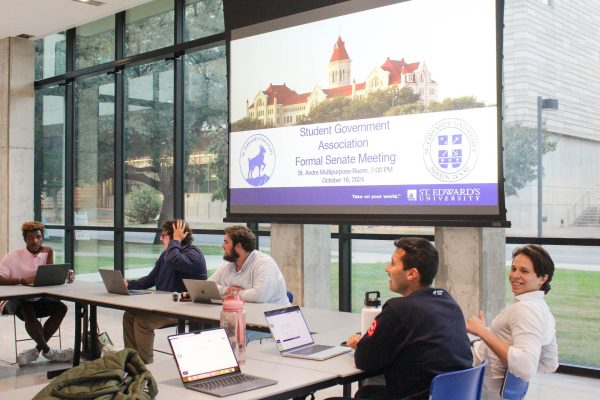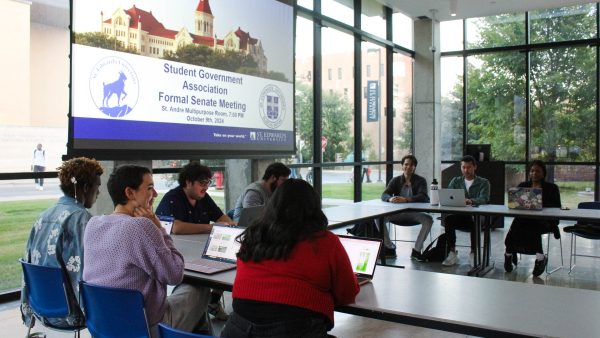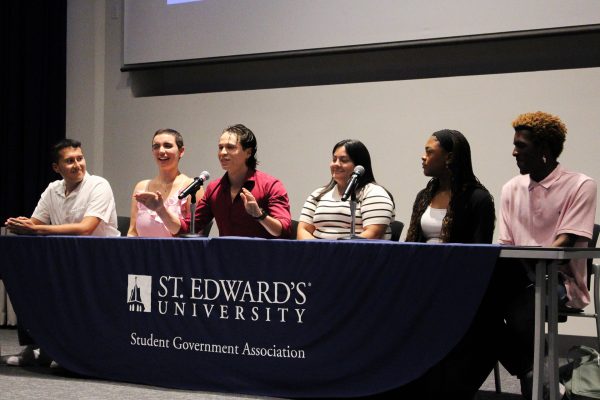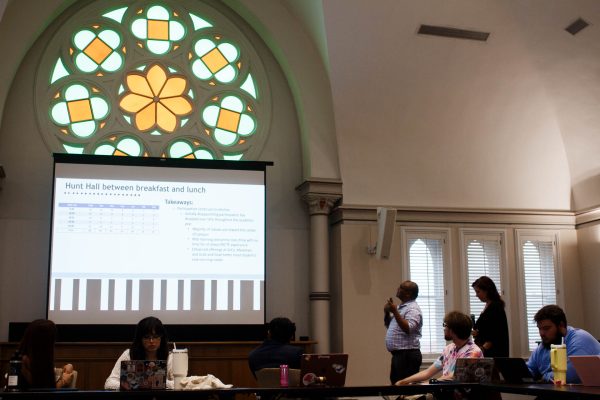St. Edward’s SGA passes legislation to seek free access to Capital Metro buses
Austin, Texas is home to several institutions including St. Edward’s University, the University of Texas at Austin and Austin Community College. However, unlike students at UT and ACC, St. Edward’s students are not allowed free access to the Capital Metro bus system. The St. Edward’s Student Government Association believes that should change.
On Feb. 6 SGA voted unanimously to pass senator John Wooding’s bill, “The Austin Access Initiative,” through final passage. The bill will allow SGA to begin discussing with the university, Capital Metro and other relevant parties the possibility of students riding for free. While SGA’s passage of the bill is only the first step in what could be a long process, many students are encouraged by the benefits this change could bring.
“Basically, its just making sure that we can have access to the transportation the city provides and for reasonable prices,” Wooding said. “I think it’s ridiculous that students at UT and ACC get to enjoy all the cool places you can go to in Austin with the bus, and we’re excessively fined every time we try to go around that.”
Currently, Capital Metro offers three types of transportation service: local, premium and commuter. Local service includes access to limited routes and cost $1.00 for a single ride and $33.00 for a monthly pass. Premium service, which includes access to MetroRapid buses and additional routes, cost $1.50 for a single ride and $49.50 for a monthly pass.
St. Edward’s students that choose to ride the bus are expected to pay the full, normal fee, while students at UT and Austin Community College can ride for free by presenting their student ID.
ACC students have had free access to capital metro transportation since Jan. 2010. Their green pass program was developed as a sustainability effort and is funded by the Board of Trustees at ACC.
Efforts have been made by St. Edward’s in the past to get students access to public transportation, but these efforts were unsuccessful. Wooding suspects that the smaller size of St. Edward’s and the fact that it is a private institution, may contribute to the difficulty of getting students free access. Approximately 50,000 students attend UT and another 43,000 attend ACC.
“You have the argument being made that there isn’t as much demand as if it were ACC and UT, but I think that’s an argument that can be very easily overcome by saying that we’re not asking for new lines. We’re simply using the ones that are literally right at our doorstep,” Wooding said.
Some students are more aware of this issue than others, but most students, particularly international students, agree that having free access to public transportation would be beneficial.
Vanessa Guadiana is a junior at St. Edward’s and often rides the bus to and from work on the weekends.
“I am aware that UT and ACC students get to ride the bus for free and I’m incredibly jealous of them. I know riding the bus only takes 1-2 bucks, but it adds up when you think about it and I hate throwing away cash like that,” Guadiana said.
By passing legislation resolution S.R. 27, SGA wants to make another effort to cooperate with the university and Capital Metro in discussing what it would take to get students free access. Wooding has begun researching the process and costs, but has found it difficult to access information regarding how other institutions have developed a similar plan.
“How it’s going to be paid for is really a huge issue too. Whether it’s going to be tagged on to tuition or tagged on in some other way is a huge thing,” Wooding said.
SGA is currently in the process of beginning discussions with university faculty and representatives.











